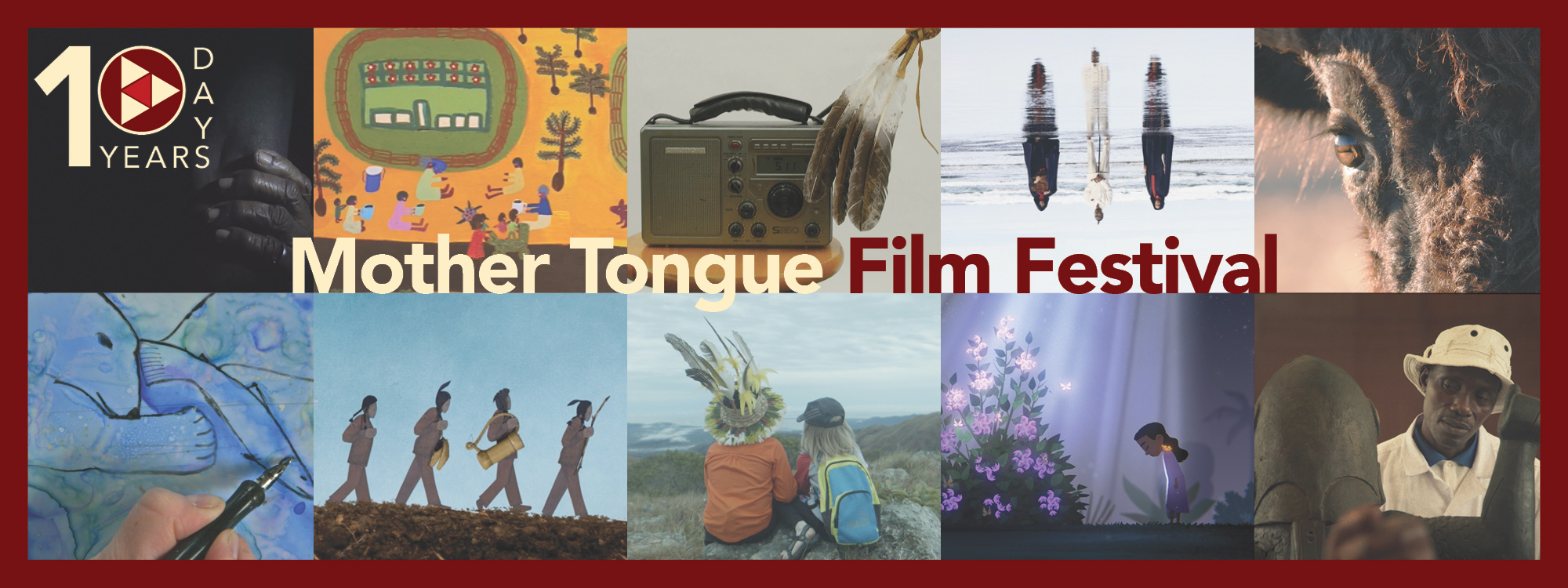
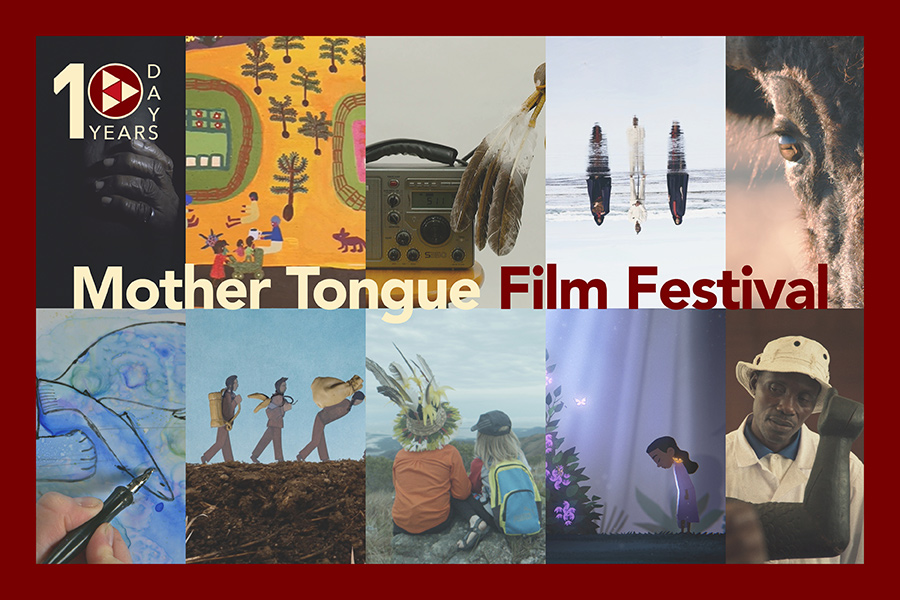
The Smithsonian’s Mother Tongue Film Festival celebrates cultural and linguistic diversity by showcasing films and filmmakers from around the world, highlighting the crucial role languages play in our daily lives.
In 2025, we celebrate the festival’s tenth year with ten days of free programming: in person in Washington, DC, February 20–23 and online February 24–March 1.
All events are free and open to the public.
Through digital storytelling, the festival amplifies the work of diverse practitioners who explore the power of language to connect the past, present, and future.
We acknowledge with respect the Piscataway people on whose traditional territory the Smithsonian stands and whose relationship with the land west of the Chesapeake Bay continues today.
As we celebrate a decade of Mother Tongue, we invite viewers around the world to enjoy a series of streaming films that have screened in past years of our festival. Each day, from midnight to 11:59 p.m. Eastern Time, a new selection of films will be available.
Join us on opening night as we kick off the tenth Mother Tongue Film Festival! Leading into our opening film, The Zotigh Singers offer a welcome song.
Award-winning Cree filmmaker Tasha Hubbard’s feature-length film Singing Back the Buffalo is an intimate story of reimagining North America through the lens of buffalo consciousness and a potent dream of what is within our grasp.
Stay after the film for a Q&A with Tasha Hubbard moderated by Cindy Benitez from the National Museum of the American Indian.
Over the last fifty years, the Human Studies Film Archive (HSFA) has become an unparalleled repository for film that documents cultural and linguistic diversity. A critical aspect of HSFA’s mission is to share these moving images with the world.
Join us for presentations by panelists who will each reflect upon their work to share aspects of this archival legacy with communities of origins: Ju/’hoansi in Namibia, Newar in Nepal, and communities in the Cook Islands, El Salvador, and Northwest Argentina. Discussing this work highlights the possibilities of reconnecting communities to their audiovisual heritage. An open discussion will follow the presentations, moderated by Joshua Bell, festival co-founder and curator of Globalization at the National Museum of Natural History.
Panelists:
Because this event takes place in a room that is not typically open to the public, registration is required.
Set in the beautiful landscape of Snowdonia, this contemporary Welsh-language horror film unfolds around a dinner party and the arrival of a young woman under mysterious circumstances. Stay after the screening for a virtual Q&A with director Lee Haven Jones.
Content advisory: This film contains strong graphic violence and is not suitable for young viewers.
Presented in partnership with NYU Washington, DC. Registration is encouraged.
What would we do for our family or for our nation? A seventeen-year-old student is forced to get off the fence he has sat on all his life to stand up for himself, his whānau (family), and his future in this heartwarming story of identity.
These collected shorts from around the world focus on stories intertwined with the passage of time and characters who wrestle with the boundaries of what was and what is to come. Explore what roots us, the arcs of life, and the things that return us to our beginnings.
This collection of films from Hawaiʻi, Canada, and Aotearoa (New Zealand) reimagines war to consider the more-than-human encounters that take place during times of conflict and the unresolved legacies that can haunt individuals and families over generations.
Content advisory: The films Kūkini and Taumanu contain scenes involving strong language and violence.
In a world where museums are increasingly working to set past collecting practices right, these films provide another point of reflection on the ongoing work of restitution. Join us for these provocative films and discussion to follow.
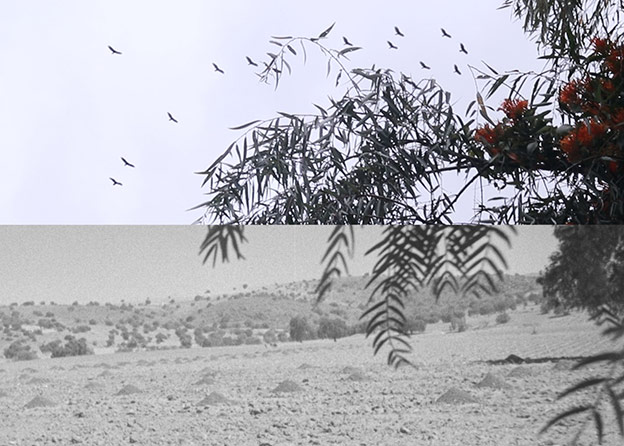
How do we remember our human and more-than-human relations? What are the legacies we wish to remember? Join us for this collection of family-friendly shorts that prompt us to think about our lives in relationship to others and the world around us.
Language is the cordage that binds us to our identities and connects us to deeper wells of knowledge and understanding. Across the world, Indigenous communities continue leading grassroots efforts to revitalize their languages using innovative technologies and creative teaching methods. Join us as we learn more about the work taking place in Northern California to raise new generations of Tolowa language speakers in A’-t’i’ Xwee-ghayt-nish (Still, We Live On).
Stay after the film for a Q&A led by Mary Linn, curator of language and cultural vitality at the Center for Folklife and Cultural Heritage.
After living for many years in Oslo, Lena moves back to Sápmi in Northern Norway with her young son to explore Sami gender in an art project. While researching in the wintry tundra, she falls in love with reindeer herder Máhtte—whose mother, the head of the family, disapproves of the relationship. As decisions from the past come to haunt her, Lena struggles to find out whether her and Máhtte’s lifestyles can ever be compatible.
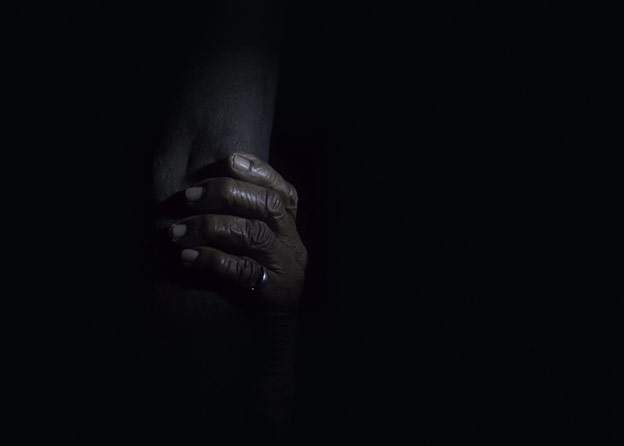
In the aftermath of Mozambique’s civil war that lasted from 1977 to 1992, the filmmaker visits his grandmother, confronting fading memories and blurred lines between truth and fiction. A former rebel’s presence in the village echoes the ghosts of war, mirroring the tensions of his generation. Shot extensively at night, the film interweaves his grandmother’s recollections with sequences of villagers reenacting harrowing events, combining performance and autoethnography to capture the feeling of a place still grappling with the past.
Film has been a way in which communities have been defined and confined. For our closing program, we examine how footage of the past can be used to rethink the present and chart a more inclusive future for Indigenous communities and their mother tongues through a poem translated through film. This poem is an experimental artistic film depicting a variety of archival images showing the Indigenous story in Australia through film over decades. Join us in experiencing this epic journey with archival footage, sound, silence and poetry.
Stay after the screening for a virtual Q&A with artist and director Jazz Money.
Presented by the National Film and Sound Archive of Australia
Films are open captioned or subtitled in English.
American Sign Language interpretation will be provided for Q&As and discussions.
All venues are wheelchair accessible.
We strive to maintain an accessible and inclusive environment for all attendees, visiting filmmakers, and staff. For questions about access services, please email folklife@si.edu.
This online, interactive resource is a visual archive of every film shown at the Mother Tongue Film Festival in its first decade. Films are grouped by continent and in alphabetical order by screening year. Scroll from Africa to Oceania, or select specific regions to explore.
Each movie is accompanied by a marker which shows the approximate location of the culture or language represented in the film. For certain films, viewers can watch trailers or full films without leaving the map.
Music provides a space for creative storytelling that transcends language barriers; it is a medium of emotional connection. This retrospective video playlist explores ten themes of creative fusions. The featured music videos convey the Mother Tongue spirit by melding culture, time, and genre to offer viewers glimpses into different ways of being. This playlist highlights the musicians and videos long beloved by Mother Tongue organizers while celebrating emerging artists from around the globe.
Since its inception, the festival has shown sxity-four films by or about Asian Americans, Native Hawaiians, and Pacific Islanders—communities that are critical to the festival’s history and future. This highlight reel features some of these films’ most captivating moments.
This project received federal support from the Asian Pacific American Initiatives Pool, administered by the Smithsonian Asian Pacific American Center.
The Mother Tongue Film Festival is a public program of Recovering Voices, a collaboration between Smithsonian’s National Museum of Natural History, the National Museum of the American Indian, the Center for Folklife and Cultural Heritage, and the Asian Pacific American Center. Find related resources through Folklife’s Mother Tongue Media and Language Vitality Initiative.
This program received support from ARENET, Ferring Pharmaceuticals, The Elizabeth and Whitney MacMillan Endowment, National Film and Sound Archive of Australia, and NYU Washington, DC.
Tasha Hubbard (Plains Cree)
Canada
Blackfoot, Cree, English, Lakota, Salish
2024
99 min.
Documentary
Indigenous visionaries, scientists, and communities are rematriating the buffalo to the heart of the North American plains they once defined, signaling a turning point for Indigenous nations, the ecosystem, and our collective survival.
Lee Haven Jones
Wales
Cymraeg (Welsh)
2021
93 min.
Drama
An affluent family gathers at their lavish home in the Welsh mountains for a dinner party, hosting a local businessman and neighboring farmer to broker a business deal to mine the surrounding countryside. When a mysterious young woman arrives to be the family’s waitress for the evening, they find their beliefs and values challenged, as her quiet yet disturbing presence begins to unravel their lives—slowly, deliberately, and with the most terrifying of consequences.
Paul Middleditch, Hamish Bennett (Māori)
Aotearoa (New Zealand)
English, Māori
2023
110 min.
Drama
Josh Waaka is an awkward teenager who has mostly been a passive bystander until he is drawn into political activism to stand up for himself, his family, and his future. The film is set in 1981 Aotearoa (New Zealand) during the politically charged South African rugby team tour and local protests against apartheid and racial inequality. It’s a funny and heartwarming story of a young man’s battle to find his true voice, set against the volatile backdrop of New Zealand’s fight for its national identity.
Duiren Wagua (Gunadule)
Panama
Dulegaya, Spanish
2022
11 min.
Drama
This short film portrays the story of Guani, an albino Gunadule boy who endures constant discrimination for being different. To counter his reality, he invents an imaginary friend, Nuchu, who guides him, and together they build their own universe through games.
Lindsay McIntyre (Inuit)
Canada
English, Inuktitut
2023
17 min.
Drama
After leaving Nunavut in the Canadian Arctic with her mother in 1938, young Marguerite must negotiate the unspoken pressures of being Inuk in her new life further south . When an extraordinary letter arrives from home, she discovers what’s really expected of her.
Evelyn Lorena
United States
Spanish, English
2024
16 min.
Drama
A young undocumented Guatemalan woman dreams of joining a country club’s swim team in the American South.
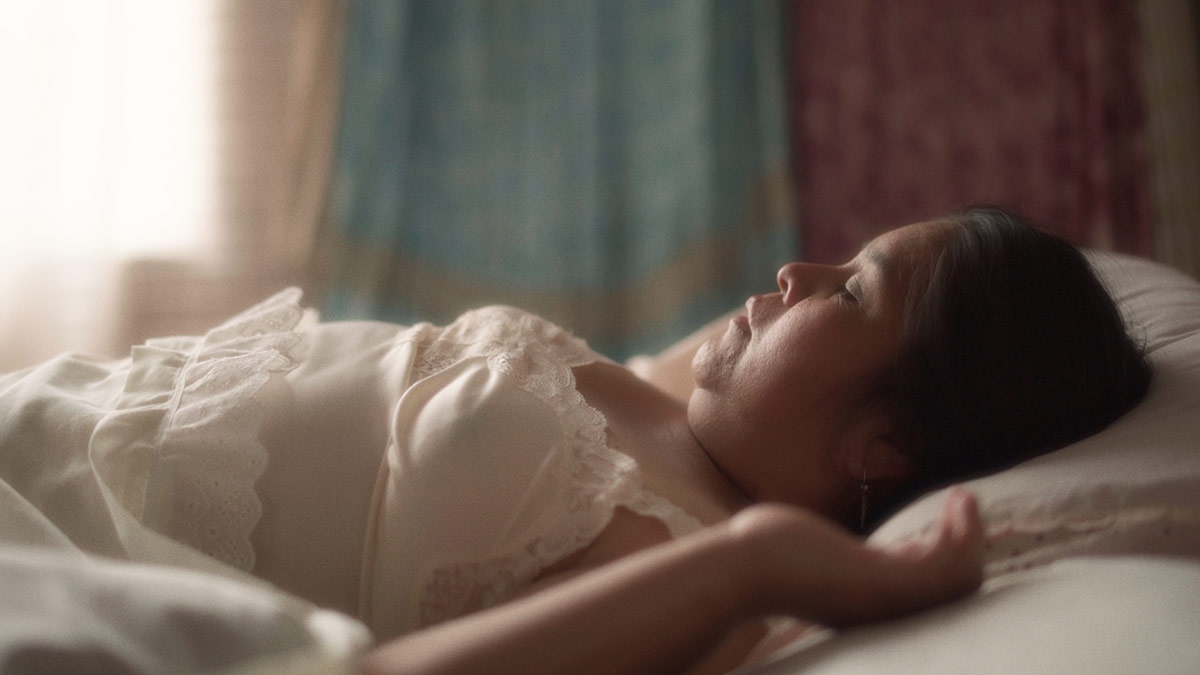
Celina Yunuen Manuel (Purépecha)
Mexico
Spanish, Purépecha
2021
12 min.
Drama
Yazmín and Zenaida, daughter-in-law and mother-in-law, live in a Purépecha community, awaiting the arrival of their husbands, spending time that will reveal infinite possibilities.
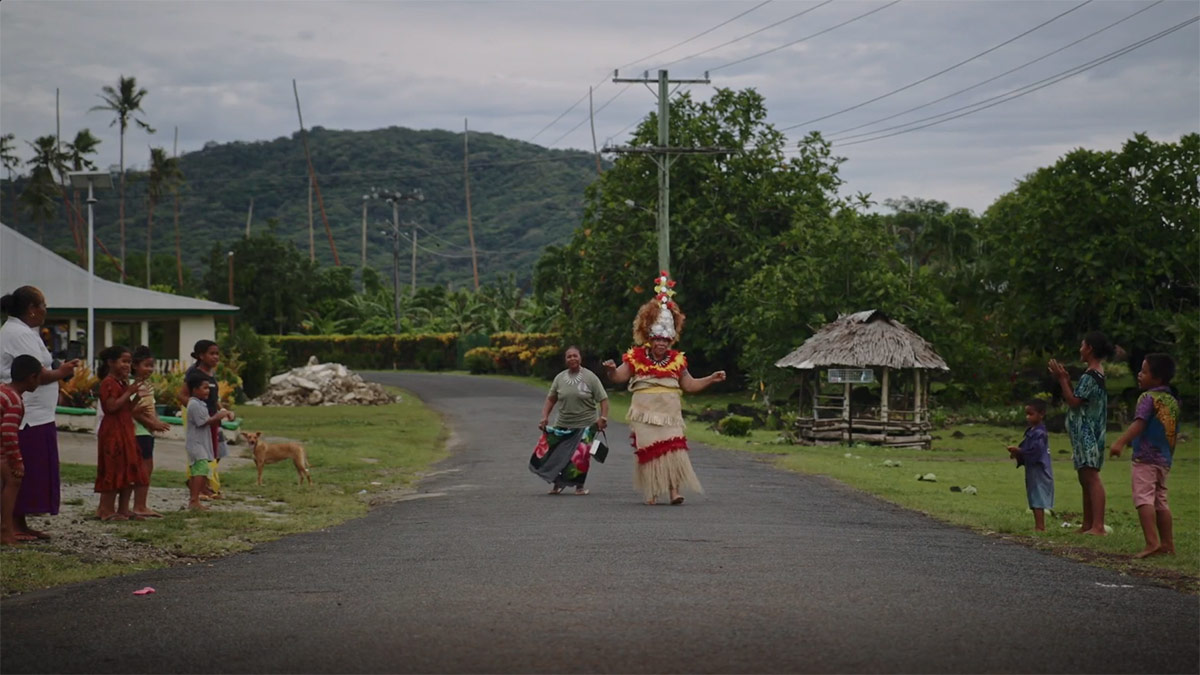
Edith Amituanai (Sāmoan)
Sāmoa
Sāmoan
2023
16 min.
Drama
“e lele le toloa ae ma‘au lava i le vai”—the duck flies far but will always return to water. Vaimoe dares to look at love and growth after loss and tragedy within the Samoan community. It addresses ideas of migration, identity, belonging, and exploring what it means to return to an ancestral homeland.
Philippe Léonard
Elisapie Isaac (Inuk)
Canada
Inuktitut
2023
4 min.
Music Video
An Inuktitut cover of Blondie’s “Heart of Glass,” by Inuk singer Elisapie Isaac showcases scenes from the Inuit community in Canada. Playing games, hauling barrels, and dog sledding are just a few of the activities played out against a frigid, snowy backdrop.
Mitchel Merrick
Hawaiʻi
ʻOlelo Hawaiʻi
2024
26 min.
Drama
In 1790 Hawaiʻi, an elite warrior must leave his family behind when sent on a deadly mission to report on the bloody war waged by Kamehameha against Maui. When captured by the enemy, he is miraculously saved by someone who has a message for him of their own.
Beric Dean Manywounds (Tsuut’ina/Anishnaabe),
Ben Pipestem (Bush Cree),
Alanna Bluebird-onespot (Tsuut’ina/Siksika),
Ryan Von Hagen
Canada
English
2023
8 min.
Animation
Nine Tsuut’ina men refuse to turn back despite three dark omens. When they come upon a Cree camp, a battle ensues parallel to a supernatural death. This is a traditional story of sacrifice, learning from nature, gentle acts of humanity, and community.
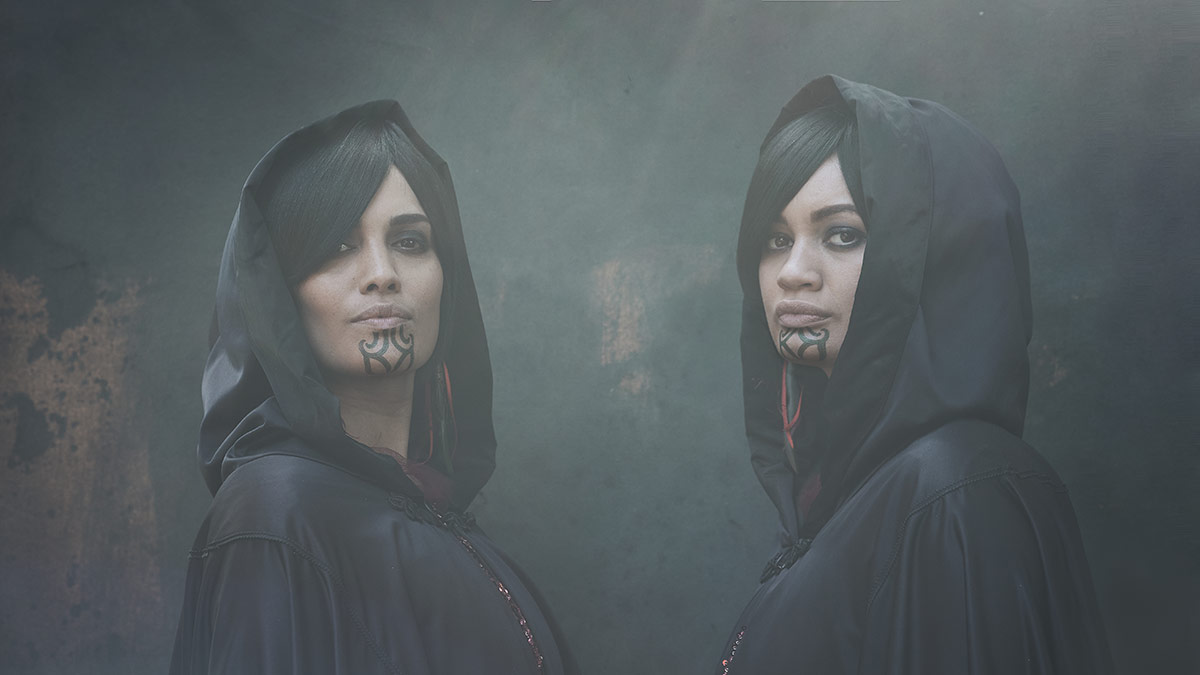
Taratoa Stappard (Māori)
Aotearoa (New Zealand)
Māori, English
2022
23 min.
Drama
New Zealand, 1929. When a parcel is delivered to a manor house, mysterious Māori twins arrive to reclaim the contents. The Māori head butler finds himself drawn into the bloody climax of a century of colonial crimes.
Entropico
Baker Boy (Yolngu) featuring JessB
Australia
Yolngu Matha, English
2019
3 min.
Music Video
The official music video for “Meditjin” features Baker Boy rapping in his Native language of Yolngu Matha as well as English, alongside six Dancehall Dancers and two members of the Baker Boy family.
Mati Diop
Benin, France, Senegal
English, French, Fon
2024
68 min.
Experimental Documentary
Dahomey is a poetic and immersive work of art that delves into real perspectives on far-reaching issues surrounding appropriation, self-determination, and restitution. Set in November 2021, the documentary charts twenty-six royal treasures from the Kingdom of Dahomey that are due to leave Paris and return to their country of origin: the present-day Republic of Benin.
Heather Campbell (Inuit)
Canada
English, Inuktitut, plus French subtitles
2023
15 min.
Documentary
Part oral history and part visual poem, this is the story of Evelyn Campbell, a trailblazer for an Inuit-led educational system in the small community of Rigolet, Labrador, Canada. Recreating not only the events of a life, but also the spare beauty of the landscape in fluid, free-flowing images that embody traditional knowledge passed on from generation to generation, this documentary is a loving testimony to the ability of one person to help shape an entire community.
Shelby Adams (Mohawk)
Canada, United States
English, Mohawk
2023
8 min.
Documentary
Bingo is a communal activity that brings together family and friends for fun and connection. But can it be more than that? Radio Bingo highlights a live radio program by the same name and reveals its role in strengthening the Mohawk language in Akwesasne, a Mohawk territory located on the borderlands of Canada and the United States.
Ciara Leinaʻala Lacy (Kānaka Maoli)
Hawaiʻi
English
2024
11 min.
Animation
A magical take on a true story, The Queen’s Flowers is an animated short adventure for kids that follows Emma, a Native Hawaiian girl living in 1915 Honolulu, as she prepares a special gift for the last monarch of Hawaiʻi, Queen Liliʻuokalani.
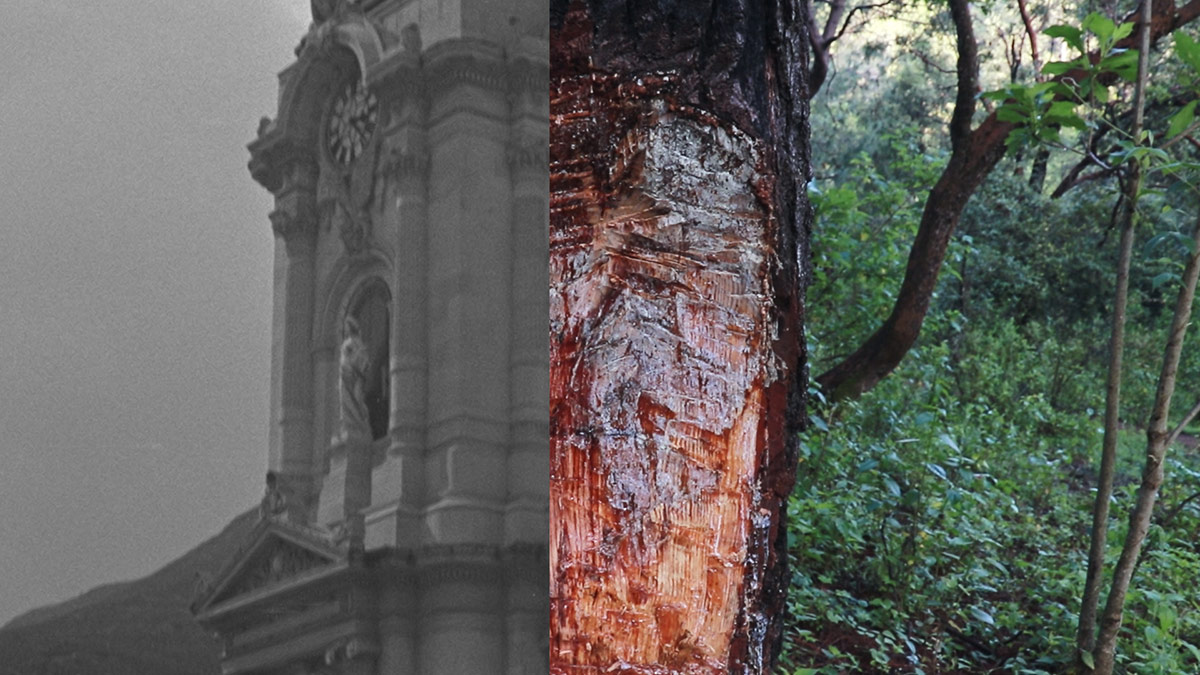
Celina Yunuen Manuel Piñón (Purépecha)
Mexico
Spanish, Purépecha
2023
3 min.
Experimental
Mintsita is breathing. Mintsita is heart. Mintsita is taking breath to continue. Mintsita is a cinematographic essay created with archival material, about external interferences and the murmurs of the trees, stones, and hills, which have been guardians of our memory. If we listen carefully, what do they tell us?
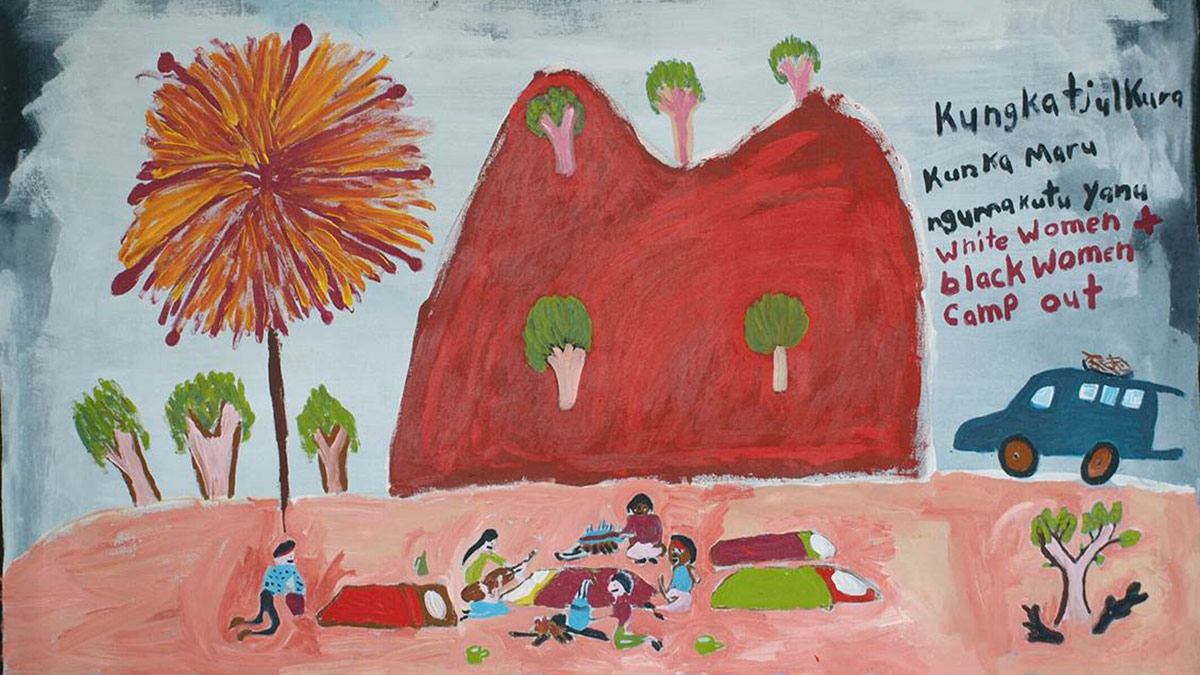
Rosalyn Brenda Boko (Luritja),
David Boko
Australia
Luritja, Yankunytjatjara, English
2024
4 min.
Animation
This short film tells a special family story shared by painter (Kunmanara) Margaret Nampitjinpa Boko in her 2013 painting on canvas “Tjulpu & Papa” (Hawk and Dog). The animation collages images of people, animals, trees, hills, roads, and houses from other painted stories, playing new roles in the retelling of this intimate story of place, family, and community, while remembering Boko’s legacy in art making and storytelling.
Dave Jannetta
United States
Tolowa, English
2023
41 min.
Documentary
With their language facing disuse, the Tolowa Dee-ni’ Nation is working against time to save it. Loren Me’-lash-ne Bommelyn, the last remaining fluent Tolowa speaker, leads the efforts to revitalize his language and culture with support from fellow Elders, knowledge keepers, ancestors, and tribal members.
Sara Margrethe Oskal (Sámi)
Northern Sámi, Norway
Sámi, Norwegian
2023
95 min.
Drama
After living for many years in Oslo, Lena moves back to Sápmi in Northern Norway with her young son to explore Sami gender in an art project. While researching in the wintry tundra, she falls in love with reindeer herder Máhtte—whose mother, the head of the family, disapproves of the relationship. As decisions from the past come to haunt her, Lena struggles to find out whether her and Máhtte’s lifestyles can ever be compatible.
Inadelso Cossa
Mozambique
Tsonga, Portuguese
2024
93 min.
Documentary
In the aftermath of Mozambique’s civil war that lasted from 1977 to 1992, the filmmaker visits his grandmother, confronting fading memories and blurred lines between truth and fiction. A former rebel’s presence in the village echoes the ghosts of war, mirroring the tensions of his generation. Shot extensively at night, the film interweaves his grandmother’s recollections with sequences of villagers reenacting harrowing events, combining performance and autoethnography to capture the feeling of a place still grappling with the past.
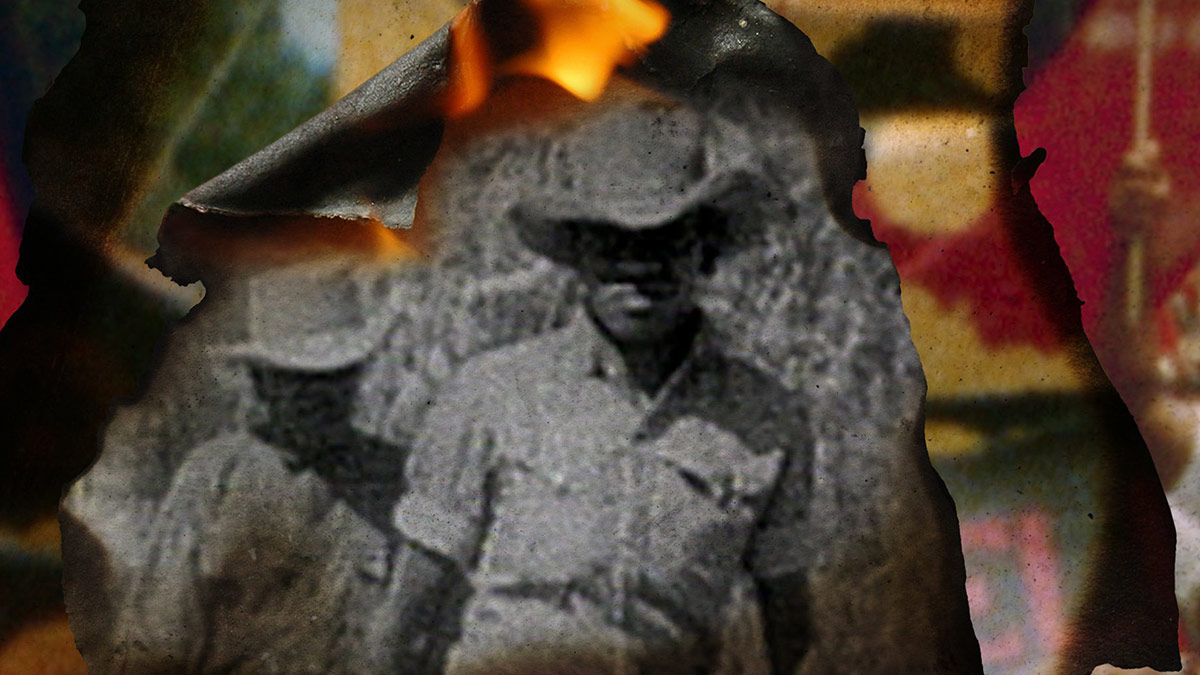
Jazz Money (Wiradjuri)
Australia
English, various
2023
64 min.
Experimental
Accessibility notice: This archive-based artwork is not captioned; some film excerpts are subtitled in English, others have no sound or translation. American Sign Language interpretation will be provided for the virtual Q&A following the screening.
WINHANGANHA (“remember, know, think” in the Wiradjuri language) is a lyrical journey of archival footage and sound, poetry, and original composition. It is an examination of how archives and the legacies of collection affect First Nations people and wider Australia, told through the lens of acclaimed Wiradjuri artist Jazz Money.
Presented by the National Film and Sound Archive of Australia
Since the inception of the Smithsonian’s Mother Tongue Film Festival, it has shown sixty-four films by or about Pacific Islanders and Asian Americans. As we prepare for the tenth annual festival in 2025, we remember these stories and connections with some of their most captivating moments highlighted here.
Every year, the festival showcases the diversity of the world’s mother tongues and presents other ways of seeing, knowing and being in the world. The voices of Asian Americans, Native Hawaiians, and Pacific Islanders are a critical part of its history and future.
A special thank you is extended to the Smithsonian Asian Pacific American Center, who made this work possible, as well as video editor Albert Tong, research assistant Sarah Richardson, and the filmmakers whose work we have featured in the reel and who have trusted us to share their work.
This project received federal support from the Asian Pacific American Initiatives Pool, administered by the Smithsonian Asian Pacific American Center.